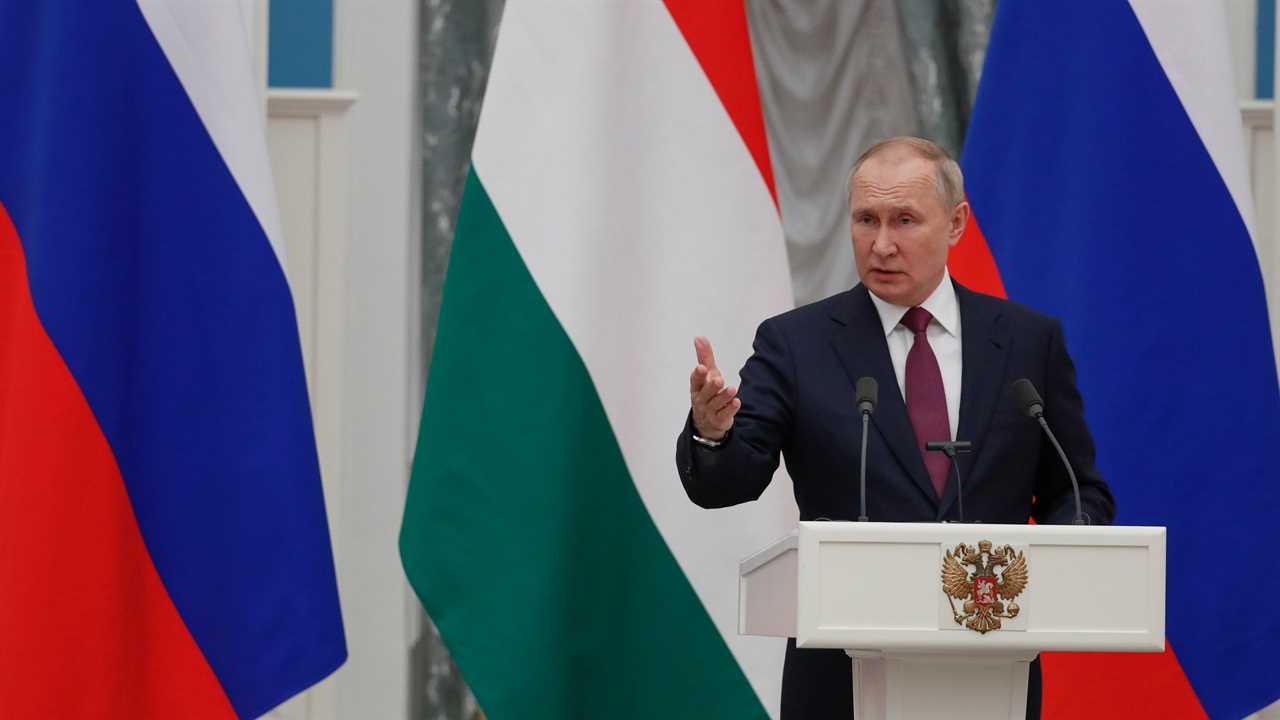
WASHINGTON — At key moments since the Ukraine crisis flared into the headlines two months ago, President Biden and his aides have worked to expose Russian President Vladimir V. Putin’s plans, declassifying intelligence about his next steps and calling him out as an “aggressor.”The administration has revealed information that could only have been obtained by penetrating, at least to some degree, Russia’s military and intelligence systems. The Pentagon declared publicly that the force Mr. Putin was assembling on three sides of Ukraine would reach 175,000 or more before an invasion began, a piece of data one cannot discern from looking at a satellite photograph.A few weeks later, it said Moscow would try to stage a provocation — a “false flag attack” on its own forces or allies — to create a pretext to act. Then the Pentagon encouraged the British to reveal a Russian plan to install a puppet government in Kyiv.Each one of those revelations was part of a strategy to get ahead of the Russians in an area where Moscow has long excelled: information warfare.But the disclosures also raised the issue of whether, in trying to disrupt Moscow’s actions by revealing them in advance, the administration is deterring Russian action or spurring it on. The administration’s goal is to cut the Russians off at each turn by exposing their plans and forcing them to think of alternative strategies. But that approach could provoke Mr. Putin at a moment when American intelligence officials believe he has not yet decided whether to invade.Democracies are usually terrible at information warfare, and American officials insist there is a difference between what they are doing and the dark arts that Mr. Putin made famous.Russia often makes up its narratives, and its officials have no problem with lying outright, as they did when Mr. Putin created a pretext to annex Crimea in 2014, sent operatives to use nerve agents against Russian opposition leader Alexei A. Navalny and a former Russian spy in Britain, and launched series of cyberattacks on the United States.Understand Russia’s Relationship With the West
The tension between the regions is growing and Russian President Vladimir Putin is increasingly willing to take geopolitical risks and assert his demands.
Competing for Influence: For months, the threat of confrontation has been growing in a stretch of Europe from the Baltic Sea to the Black Sea. Threat of Invasion: As the Russian military builds its presence near Ukraine, Western nations are seeking to avert a worsening of the situation.Energy Politics: Europe is a huge customer of Russia’s fossil fuels. The rising tensions in Ukraine are driving fears of a midwinter cutoff.Migrant Crisis: As people gathered on the eastern border of the European Union, Russia's uneasy alliance with Belarus triggered additional friction.Militarizing Society: With a “youth army” and initiatives promoting patriotism, the Russian government is pushing the idea that a fight might be coming.The American and British warnings, officials insist, are drawn from what they view as a credible stream of intelligence assessments, and have been backed up by commercial satellite photography and Twitter posts showing a massive force assembling on Ukraine’s borders.Naturally, officials refuse to talk about how they obtained the underlying information about Russia’s plans. But several of the disclosures have triggered debates about whether the U.S. or its allies risked giving away their sources and methods, the most precious resource in the intelligence world.“Regardless of how this plays out, it will be a great case study in the pre-emptive use of intelligence,’’ said Paul R. Kolbe, the former chief of the C.I.A.’s Central Eurasia Division, who worked in Russia as Mr. Putin rose and now directs the intelligence project at Harvard.But already that strategy of raising alarms has triggered some discomfort.Ukraine’s leadership has objected to the American characterization that an invasion is “imminent” — or even likely. “They make it as acute and burning as possible,’’ President Volodymyr Zelensky complained the other day, a point he made more vividly to Mr. Biden in a phone call last week. “In my opinion, this is a mistake.”ImageThe Pentagon declared publicly that the force Mr. Putin was assembling on three of Ukraine’s borders would reach 175,000 or more before an invasion began.Credit...Associated PressThe source of Mr. Zelensky’s concern is understandable: He doesn’t want to panic his population, tank the Ukrainian stock market, or watch investors and foreign executives race to the airport. And Mr. Biden’s communications aides have toned it down a little bit, dropping the word “imminent” from their warnings of a Russian invasionBy: David E. Sanger
Title: Biden Calls Out Putin’s Actions — but Is He Pushing Moscow to War?
Sourced From: www.nytimes.com/2022/02/02/us/politics/biden-putin-strategy.html
Published Date: Thu, 03 Feb 2022 00:18:43 +0000
Read More
Did you miss our previous article...
https://badpoliticians.com/us-politics/one-illness-reminds-democrats-that-they-dont-have-any-votes-to-spare
 UK PoliticsWorld PoliticsVideosPrivacy PolicyTerms And Conditions
UK PoliticsWorld PoliticsVideosPrivacy PolicyTerms And Conditions
